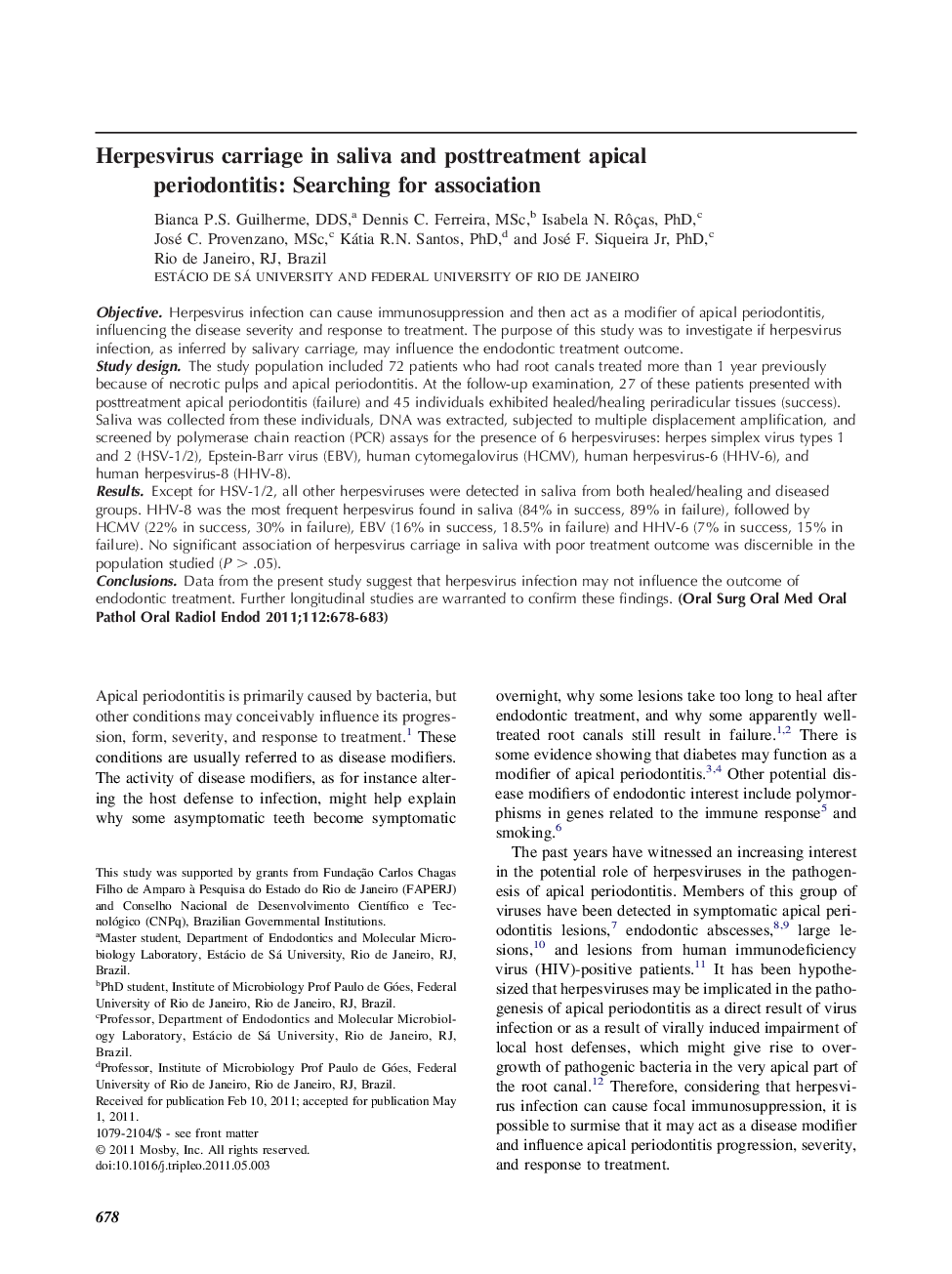| Article ID | Journal | Published Year | Pages | File Type |
|---|---|---|---|---|
| 6059611 | Oral Surgery, Oral Medicine, Oral Pathology, Oral Radiology, and Endodontology | 2011 | 6 Pages |
ObjectiveHerpesvirus infection can cause immunosuppression and then act as a modifier of apical periodontitis, influencing the disease severity and response to treatment. The purpose of this study was to investigate if herpesvirus infection, as inferred by salivary carriage, may influence the endodontic treatment outcome.Study designThe study population included 72 patients who had root canals treated more than 1 year previously because of necrotic pulps and apical periodontitis. At the follow-up examination, 27 of these patients presented with posttreatment apical periodontitis (failure) and 45 individuals exhibited healed/healing periradicular tissues (success). Saliva was collected from these individuals, DNA was extracted, subjected to multiple displacement amplification, and screened by polymerase chain reaction (PCR) assays for the presence of 6 herpesviruses: herpes simplex virus types 1 and 2 (HSV-1/2), Epstein-Barr virus (EBV), human cytomegalovirus (HCMV), human herpesvirus-6 (HHV-6), and human herpesvirus-8 (HHV-8).ResultsExcept for HSV-1/2, all other herpesviruses were detected in saliva from both healed/healing and diseased groups. HHV-8 was the most frequent herpesvirus found in saliva (84% in success, 89% in failure), followed by HCMV (22% in success, 30% in failure), EBV (16% in success, 18.5% in failure) and HHV-6 (7% in success, 15% in failure). No significant association of herpesvirus carriage in saliva with poor treatment outcome was discernible in the population studied (P > .05).ConclusionsData from the present study suggest that herpesvirus infection may not influence the outcome of endodontic treatment. Further longitudinal studies are warranted to confirm these findings.
